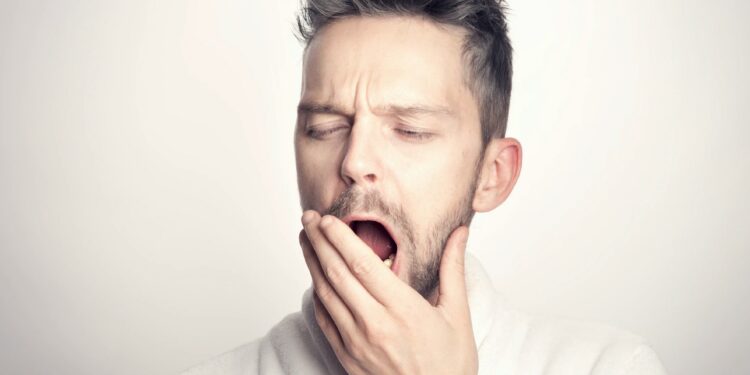Not everyone is lucky enough to have an easy time falling asleep, and for the unlucky ones it can be worse than nightmares – at least that would mean you got enough sleep at night! Even when you do fall asleep, it’s hardly the peaceful sleep you need, and you wake up feeling unrested and groggy.
Sleeping pills and other medication is definitely a solution, but if you don’t want to self-medicate to get the sleep you need just yet, other options include chamomile tea before bed and relaxing baths. But see, to get better sleep, first you need to identify the factors that are keeping you from sleeping well and eliminate them. It won’t do you any good to take relaxing baths every night when it’s a bad quality mattress keeping you up at night.
In a recent article, US-Mattress said that “Those who sleep hot often say that innerspring mattresses offer the highest level of air circulation. And, anyone who has trouble getting in and out of bed may find innerspring to be the best option.” Now, if you’ve been sleeping on a mattress that isn’t right for you, then it won’t matter what else you do.
That said, let’s talk about eight proven habits to help you sleep better at night. While you try to weed out the real culprit, these might help.
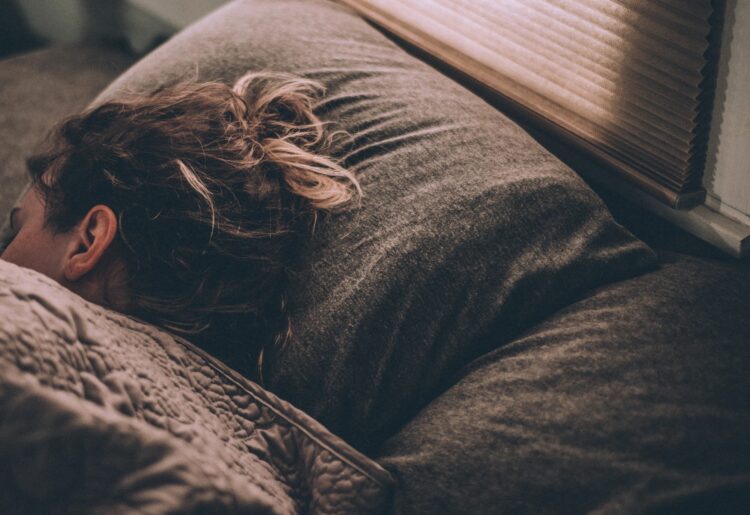
1. Avoid Afternoon Naps
Countless sleep therapists all over the world recommend not sleeping during the day to anyone who has trouble sleeping at night. That’s because sleeping during the day can disturb your natural circadian rhythm, and hinder your sleep even more.
Sleeping during the day can also make you feel well-rested and active when it’s actually time to sleep. But even that feeling is short-lived, and you end up feeling burned out when it’s time to work and be at your best.
2. Increase Daylight Exposure
Your body has been programmed to react a certain way to many incoming signals throughout your life, and some of these reactions are more obvious than others. Your hand instantly recoils the moment you touch something hot, and your body reacts in a more subtle fashion to how much light there is around you.
During the day when you stay in the dark, your body fails to recognize that it is, in fact, daytime. This puts your internal clock off and makes you unable to sleep at night. This is why it’s a good idea to soak up as much sunlight as you can during the day, and hope it helps you feel sleepier when night comes.
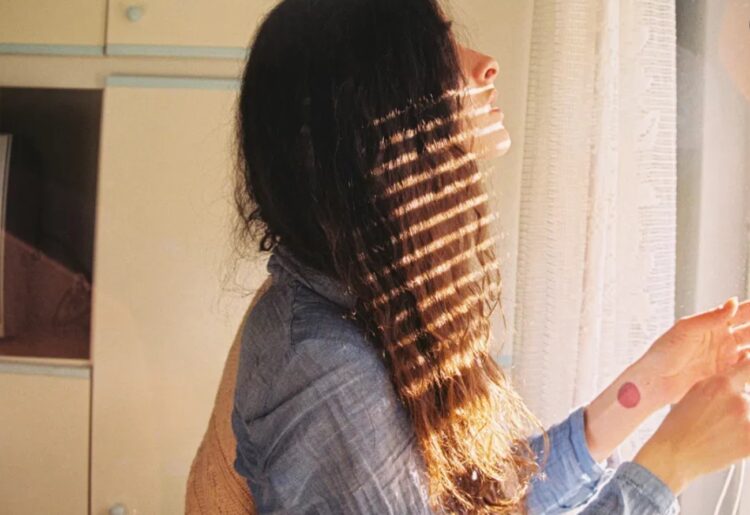
3. Skip the Caffeine
We all know how coffee, tea, and any other caffeinated beverage can make you feel charged and hyper after you drink it. When you drink beverages like this a few hours before bed, you’re already setting the stage for a restless night full of interrupted or troubled sleep.
To make sure you have an easy time falling asleep, stay away from all kinds of caffeine in the evening. Sure, you might still have trouble falling asleep but at least caffeine won’t be one more thing adding to it!
4. Stick to Regular Bedtimes
You might have a better time with your sleep schedule if it’s consistent. If you go to bed at 10 pm one night and then have to stay up until 3 am the next, your body will obviously not cooperate. As much as it’s annoying to admit, your body has its own needs, and it would be an awful idea to think that it will automatically adjust to random bedtimes whenever.
Try sticking to a single bedtime and stick to it for a couple of weeks. Chances are that your body will grow accustomed to sleeping at that time and you’ll improve the quality of your life.
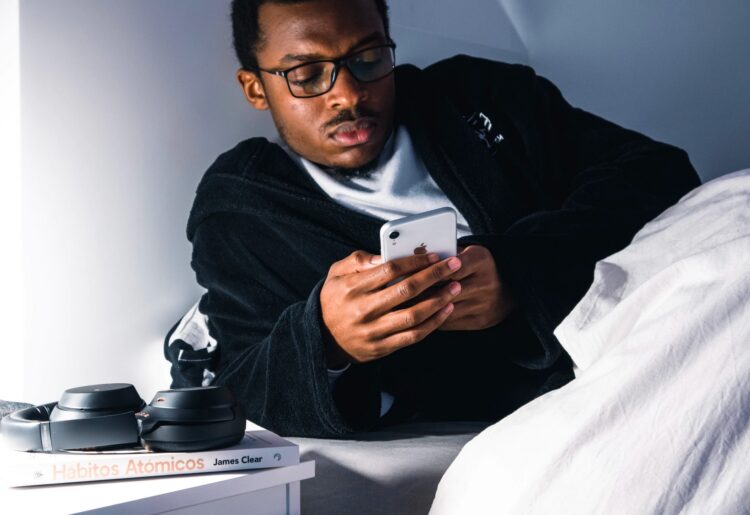
5. Don’t Take Your Daytime Problems to Bed
Your bed should be where you relax and rest. When you wake up in the morning, step out of bed immediately and avoid sitting there with the phone in your hands before stepping into the shower or brushing your teeth.
Avoid doing any of your office work in bed, and avoid using your phone in bed right before you want to sleep. Doing these things can make your mind associate your bed with things that aren’t sleep and rest, and that makes it harder for you to relax at night.
6. Eat Well!
Avoid drinking too much water before bed – the last thing you want is to have to wake up in the middle of the night to go to the bathroom. This only disturbs you and you’ll probably have a hard time relaxing enough to fall asleep again.
Avoid any kind of heavy meal a few hours before bedtime and keep your dinner light. On the other hand, make sure to eat something before you go to sleep – you won’t have an easy time falling asleep on an empty stomach either.

7. Avoid Alcohol
Don’t drink before bed. Alcohol can increase symptoms associated with sleep apnea and has been linked to disrupted sleep patterns in the past according to Healthline – that’s definitely not something you want to be putting in your system right before bed.
If you really want to be sipping on something, try calming teas with blends of soothing herbs, or some warm milk instead. These will warm your body up and help you relax. Pair that with some light reading and it’s the perfect thing to sleep to.
8. Choose the Right Temperature Settings
Sleeping can be tough when you’re too hot or too cold, which is why the right temperature settings are essential. For many people, sleeping in a room that’s on the colder side with a weighted blanket is the ideal setting.
The blanket provides comfort and warmth, while the chilly atmosphere helps you feel even cozier in your cocoon.
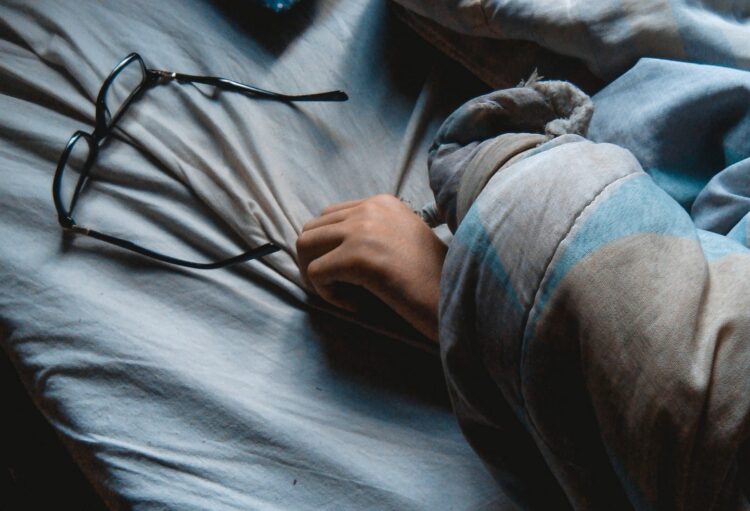
When you’re going to bed, make sure there are no distractions or things that would keep you awake. Turn the lights off and minimize the noise, take your mind off work and choose the right kind of pajamas for a good night of rest.

